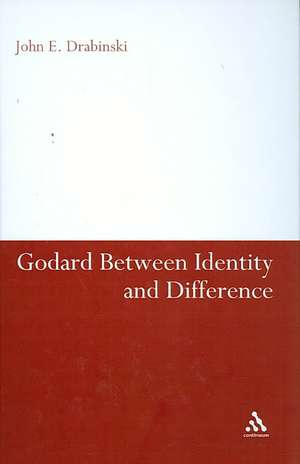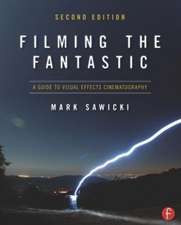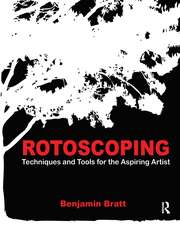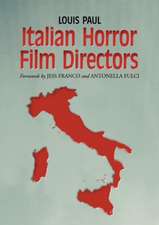Godard Between Identity and Difference
Autor John E. Drabinskien Limba Engleză Hardback – 14 aug 2008
| Toate formatele și edițiile | Preț | Express |
|---|---|---|
| Paperback (1) | 255.29 lei 6-8 săpt. | |
| Bloomsbury Publishing – 2 noi 2011 | 255.29 lei 6-8 săpt. | |
| Hardback (1) | 830.29 lei 6-8 săpt. | |
| Bloomsbury Publishing – 14 aug 2008 | 830.29 lei 6-8 săpt. |
Preț: 830.29 lei
Preț vechi: 1196.57 lei
-31% Nou
Puncte Express: 1245
Preț estimativ în valută:
158.88€ • 169.89$ • 132.47£
158.88€ • 169.89$ • 132.47£
Carte tipărită la comandă
Livrare economică 17 aprilie-01 mai
Preluare comenzi: 021 569.72.76
Specificații
ISBN-13: 9780826428066
ISBN-10: 0826428061
Pagini: 176
Ilustrații: 10
Dimensiuni: 162 x 236 x 19 mm
Greutate: 0.41 kg
Editura: Bloomsbury Publishing
Colecția Continuum
Locul publicării:New York, United States
ISBN-10: 0826428061
Pagini: 176
Ilustrații: 10
Dimensiuni: 162 x 236 x 19 mm
Greutate: 0.41 kg
Editura: Bloomsbury Publishing
Colecția Continuum
Locul publicării:New York, United States
Caracteristici
This monograph shows how his films can be useful to several academic disciplines.
Cuprins
1. About the Other2. Separation and Death: Location in Ici et ailleurs3. The Fate of the Image in Comment ca va?4. The Unassimilable Body of Numero Deux5. Spectator, Montage, and Violence
Recenzii
"Drabinski (black studies, Amherst College) has set himself a stiff task in this book: to discuss Godard's films as philosophy. The films, he avers, are not about philosophy but rather are Godard's attempt to enter into a philosophical discourse about the other, the gaze, violence, and responsibility in the contemporary world. In this endeavor, Godard follows the thinking of Emmanuel Levinas and Jacques Derrida...Drabinski does an admirable job of elucidating the difficult intellectual positions and is convincing in his assertion that film (and film criticism) can be philosophy. Summing Up: Recommended. Upper-division undergraduates through faculty." -W. A. Vincent, CHOICE, February 2009
Notă biografică
John E. Drabinski teaches at Hampshire College. He is the author of Sensibility and Singularity: The Problem of Phenomenology in Levinas.




















